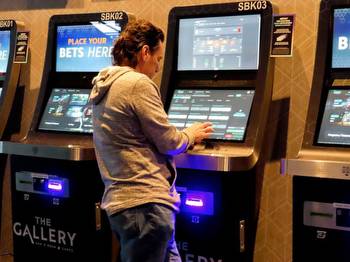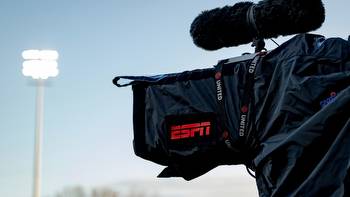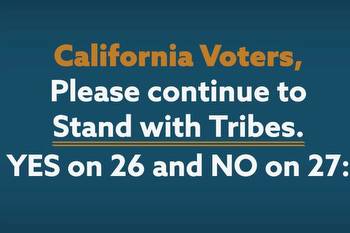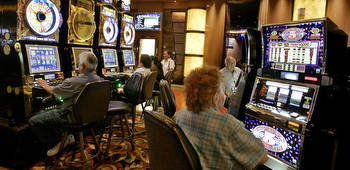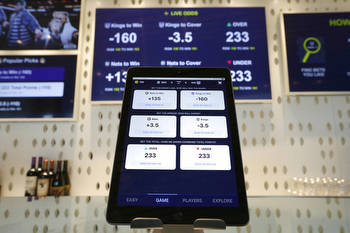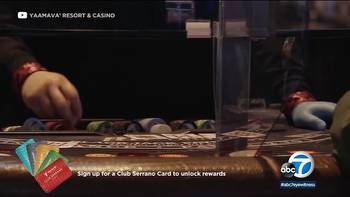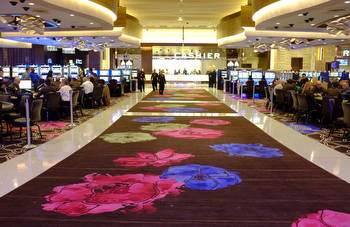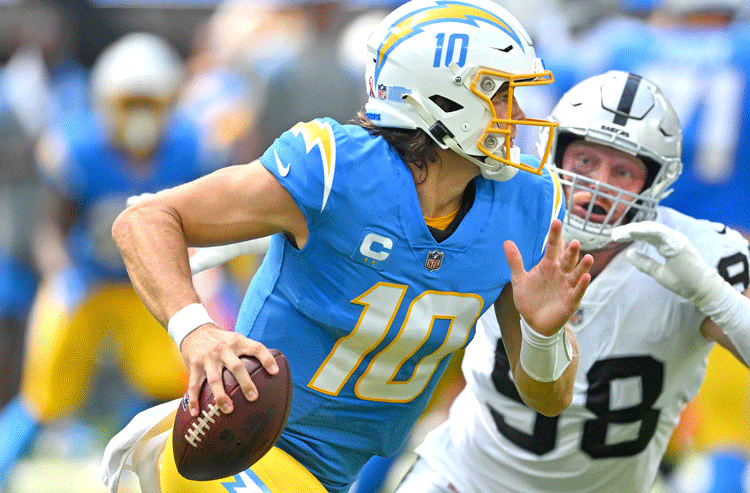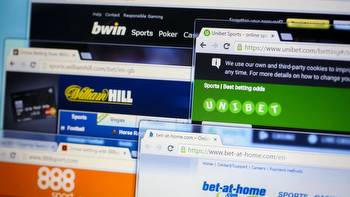Some forms of ‘sports betting’ are allowed in California even after last year’s massive defeat at the ballot box

Although two ballot sports betting ballot measures went down in flames last year, some forms or derivatives of sports betting are not only legal in California, but at least one tribe with a casino is facilitating it.
The key to understanding how this could be is to understand that “sports betting,” in the broadest sense, can take many different forms. The ballot measures that were so soundly defeated last year dealt specifically with what most people probably think about when they hear the term sports betting: the wagering of money on the outcome of a sporting event or the performance of an athlete in a game.
But that’s not the only way you can “bet” on sports in today’s sports-obsessed, tech-and-data-driven world.
Among the biggest proponents for legalizing sports betting in California last year were the ubiquitous online operators FanDuel and DraftKings. Both brands operate sportsbooks, where you can wager money on the outcome of games.
But FanDuel and DraftKings started out in a different niche entirely: daily fantasy sports.
For the uninitiated, fantasy football is where players act as the owners and general managers of virtual football teams in a virtual football league. At the beginning of the real football season, league-mates draft real, active football players to become members of pretend teams. Each player on your pretend team is awarded fantasy points every week based on their performance in real games.
The pretend teams, composed of real players, face off against each other every week. The team whose players generate the most fantasy points wins the game.
Daily fantasy is the same thing – only instead of drafting a fantasy team for a full season, you draft a fantasy team (in any sport, really) for only a day or week of competition. And you can play daily fantasy games on FanDuel or DraftKings for free, or for real money, even right here in California today. You could also do it last year and the year before that and the year before that.
But how is that possible in California, where voters just overwhelmingly voted down sports betting?
It’s possible because California, like most states, doesn’t consider wagering on daily fantasy sports to be, technically, sports betting. Fantasy sports – daily or otherwise – generally are considered to be skills-based games, not games of chance. Which makes fantasy sports not gambling in the eyes of the law.
You can play daily fantasy games on FanDuel or DraftKings for free, or for real money, even right here in California today. You could also do it last year and the year before that and the year before that.
Of course, all of this is muddled in the eyes of consumers, because while DraftKings and FanDuel still offer daily fantasy sports, they also rushed to enter the more traditional world of sports betting when they opened their own sportsbooks shortly after the U.S. Supreme Court in May 2018 struck down the federal ban on sports betting in most states.
That’s why there are still plenty of DraftKings and FanDuel advertisements in California, even after they got their curb-stomped at the ballot box in November. They’re still offering daily sports fantasy here, which is what they are advertising.
Another version or derivative of sports betting that’s legal in California is free sports betting – and that’s what at least one tribe has gotten involved with.
Sparket, a Los Angeles-based tech company, has developed a free sports betting platform that’s used by the 29 Palms Band of Mission Indians in San Bernardino County.
The mobile app awards users virtual coins every time they log in. Users can then use those coins to place wagers on real sporting events. If their bets win, they win more coins, which they can in turn use to bet on more sporting events.
Crucially, users can also use those virtual coins to cash in real life prizes or other benefits at the tribe’s casino, which addresses a long-standing tension between mobile sports betting and brick-and-mortar casinos: the fear that technology will drive gamblers away from in-person betting.
“I don’t want to be cannibalizing anybody’s business,” said Aaron Basch, co-founder and CEO of Sparket.
Basch said some gaming operations have embraced Sparket because they recognize sports betting will be coming to the Golden State eventually and they want to start collecting data on their future sports bettors. A “social betting” app like Sparket, which is legal under California law because it doesn’t involve the wagering of real money, is perfect for just that function.
In fact, representatives of Redination, an economic development company based in San Diego that works with tribes and Sparket, said many California tribes are interested in free sports betting.
“Eventually, we’re all going to have some form of sports betting,” said Blue Quisquis, who described himself as “the chief innovation officer” for Redination. Will free sports betting offered by the 29 Palm Band of Mission Indians become a trend among California gaming tribes? It’s hard to say at this point.
After all, the 29 Palm Band of Mission Indians’ casino, Spotlight 29 Casino, is in Coachella, in Riverside County – and the most successful Indian casinos are near big cities. Indeed, Richard Schuetz, the renowned casino executive and gaming regulator and former member of the California Gambling Control Commission, says California’s gaming tribes most oppose sports betting because they want to protect the geographic advantage of their casinos.
Schuetz is fond of saying that the push for sports betting in California is just “the camel’s nose in the tent.” The real interest DraftKings and FanDuel have – and the real threat the tribes face – is iGaming, he said.
iGaming is online casino gaming, which can be done anywhere, thus removing the advantage the tribes with casinos near big cities have. That is why the tribes fought so hard against sports betting last year, Schuetz said. They fear legalized sports betting in California will open the door for iGaming in California, and iGaming will render their casinos pointless.
“This really isn’t about sports betting,” Schuetz told Capitol Weekly. “This is really about iGaming.”

